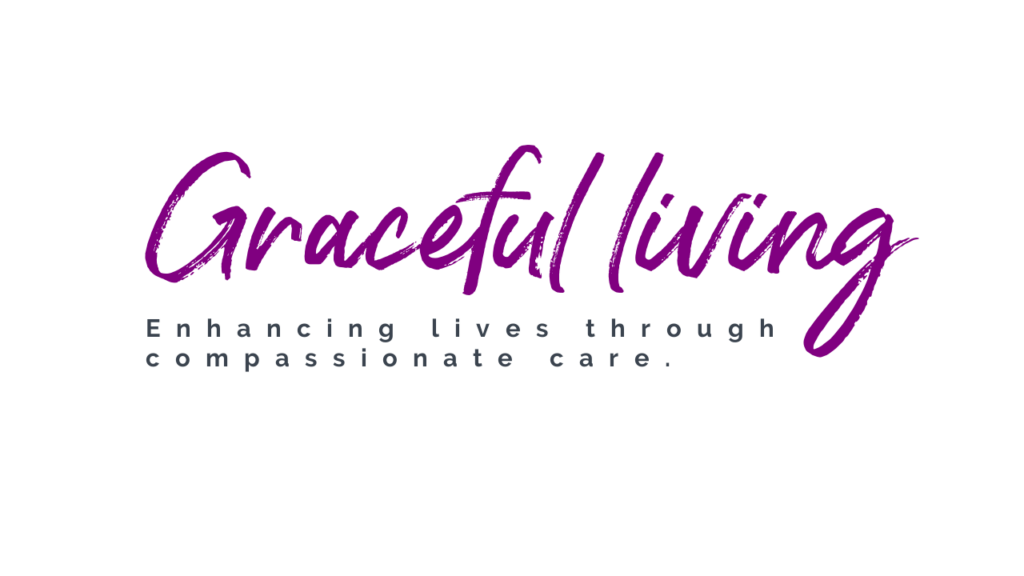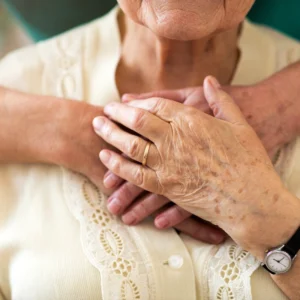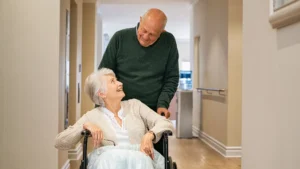
Technology Solutions to Support Caregivers and Seniors: Enhancing the Aging-in-Place Experience
Aging in place is becoming an increasingly popular choice for seniors who want to maintain their independence while staying in the comfort of their own homes. It offers the familiarity and stability of home, but with the right support and care. For both seniors and their caregivers, technology plays an essential role in making this possible. Modern technological solutions provide valuable tools that assist with safety, monitoring, communication, and convenience. As a leading provider of personal care assistance in Las Vegas, Abiding Home Care Services Inc. is proud to share insights into how technology can enhance the aging-in-place experience for seniors and provide support for caregivers.
1. Remote Monitoring Systems for Safety and Security
One of the top concerns for seniors aging in place is safety. Remote monitoring systems are designed to help caregivers monitor their loved ones’ well-being without the need for constant in-person supervision. These systems can track activity, detect falls, and alert caregivers to any unusual behavior. Smart home technology like motion sensors, door/window sensors, and fall detection systems allow caregivers to receive real-time alerts, ensuring timely assistance if needed.
Devices such as wearable fall detectors are also becoming increasingly common. These devices can automatically send an alert when a senior has a fall, enabling caregivers to respond quickly. Not only does this provide peace of mind, but it also helps reduce response time, which is crucial for preventing further injury.
2. Smart Home Devices for Convenience and Independence
Seniors can maintain their independence by utilizing smart home devices that automate daily tasks. Voice-controlled assistants, like Amazon Alexa or Google Assistant, are valuable tools for seniors who may have limited mobility or dexterity. These devices allow users to control lights, adjust the thermostat, play music, make phone calls, or even set reminders, all with simple voice commands. By providing these options, smart devices help seniors accomplish tasks that they may otherwise find challenging.
For example, seniors can set medication reminders or be reminded to hydrate or eat, reducing the likelihood of missed appointments or neglected health needs. Additionally, these devices can integrate with other home automation systems to manage home security, lighting, and entertainment, making life more convenient.
3. Telehealth and Virtual Healthcare Visits
One of the most important advancements in recent years is telehealth technology, which allows seniors to consult with their healthcare providers virtually. For seniors who may have difficulty leaving home due to mobility issues or chronic conditions, telehealth eliminates the need for in-person visits and makes it easier to access medical advice, prescription refills, and follow-up appointments. Telemedicine platforms allow seniors to connect with their doctors via video calls, ensuring that they stay on top of their health without the added stress of travel.
For caregivers, telehealth makes it simpler to monitor and coordinate care, as they can communicate with healthcare professionals directly, share medical updates, and seek advice without leaving the home. This technology is especially beneficial for managing chronic conditions, tracking medication regimens, and monitoring health metrics like blood pressure or blood sugar levels.
4. Medication Management Technology
Medication management can be one of the most challenging aspects of aging in place. Many seniors are on complex medication regimens that require regular doses at specific times. Forgetting or mixing up medications can lead to serious health issues. To help solve this problem, several medication management technologies have been developed.
Automatic pill dispensers are one example. These devices can organize pills and dispense them at scheduled times, providing seniors with the correct doses. Some systems even send reminders or alerts if a dose is missed. For caregivers, these systems can be connected to an app that tracks medication compliance, ensuring that medications are taken as prescribed.
Smart pillboxes with Bluetooth connectivity are another helpful tool. These allow caregivers to remotely monitor if medications have been taken, reducing the risk of missed doses. With these technologies, seniors have more independence, and caregivers have more peace of mind knowing that the risk of medication errors is minimized.
5. Video Communication Tools for Social Interaction
Isolation can be a significant concern for seniors who live alone, as it can affect both their mental and physical health. Technology has made it easier for seniors to stay connected with their family, friends, and caregivers. Video communication tools such as Zoom, Skype, or FaceTime allow seniors to maintain regular contact with loved ones, preventing feelings of loneliness and isolation.
For caregivers, these tools can also be used to check in with seniors, especially for those who live far away. Virtual visits give caregivers the opportunity to assess their loved one’s emotional and physical well-being, ask if they need anything, and provide comfort and support without being physically present.
6. Smart Wearables for Health Monitoring
Wearable devices have become increasingly popular in senior care. Devices such as fitness trackers, heart rate monitors, and smartwatches can track a variety of health metrics, including activity levels, sleep patterns, and heart rate. Some wearables even come with emergency buttons or fall detection features that send alerts to caregivers or emergency contacts in case of an emergency.
These devices are valuable not only for tracking health data but also for encouraging seniors to stay active and engaged. Many seniors with chronic conditions benefit from wearing fitness trackers, as these devices remind them to stay active and can monitor key health indicators that may indicate potential issues.
7. Robotic Assistance for Daily Tasks
For seniors who need help with physical tasks like cleaning, meal preparation, or mobility, robotic assistants are making life easier. Robotic vacuum cleaners like the Roomba can help with housekeeping, while robotic arms or helpers can assist with personal care tasks. Some robots can even remind seniors to take medication or call for help if needed.
While this technology is still developing, it shows promise in supporting seniors who wish to age in place without relying on full-time caregiving services. These technologies can provide extra support while allowing seniors to maintain their independence and dignity.
Conclusion
As seniors continue to choose aging in place as their preferred option for later years, technology is stepping up to provide solutions that support both the senior and the caregiver. From remote monitoring systems and smart home devices to telehealth services and medication management tools, technology is making it easier for seniors to live safely, independently, and comfortably in their own homes.
Abiding Home Care is committed to providing the highest level of support for our clients in Las Vegas, NV, and we are excited about the ways technology can enhance the aging-in-place experience. Whether you are a caregiver looking for tools to improve your loved one’s care or a senior interested in using technology to stay independent, we are here to help guide you through the many options available to make aging in place a reality.
If you’re interested in learning more about our services can benefit you or your loved one, feel free to reach out to Abiding Home Care Services Inc. for expert advice and support.

Abiding Home Care
Homecare blogger
Abiding Home Care
Providing resources to make living easier.
We're here.
Get Started Today
Reach out to us to learn more about how we can assist you. Contact us via email at [email protected] or call us at (702) 888-1415. We look forward to helping you or your loved ones maintain independence and quality of life.
Your care is our priority — let us show you the Abiding Home Care difference.


